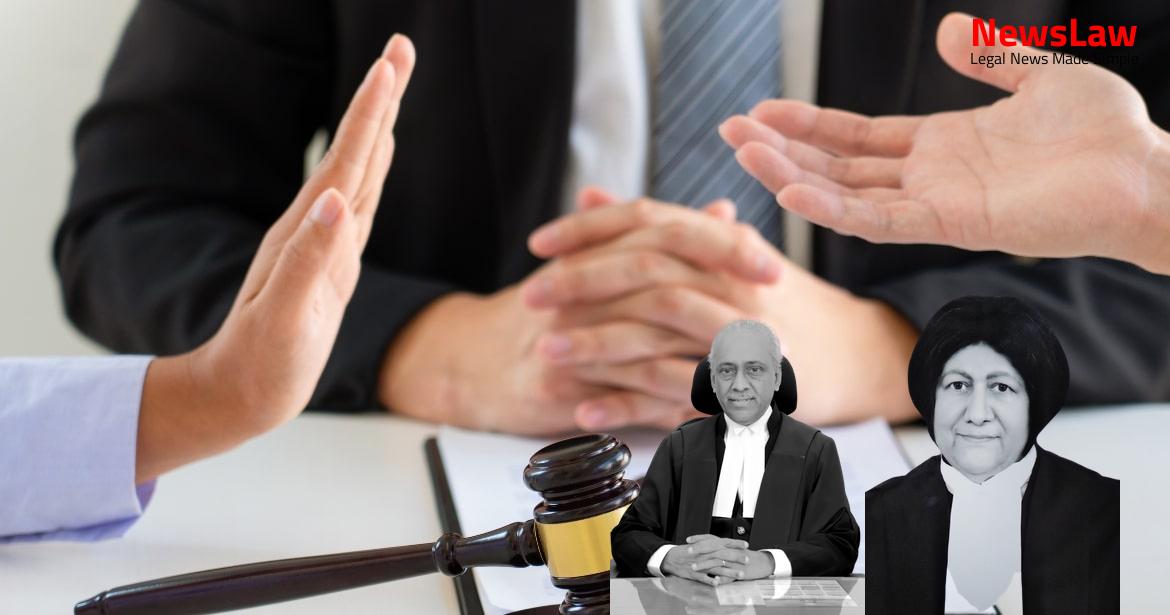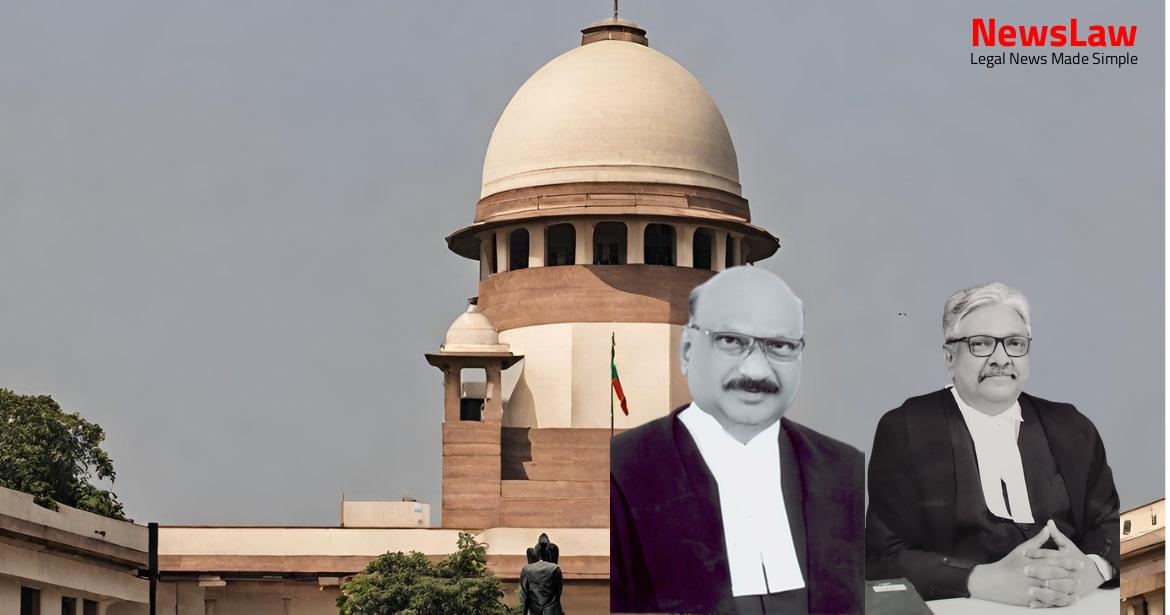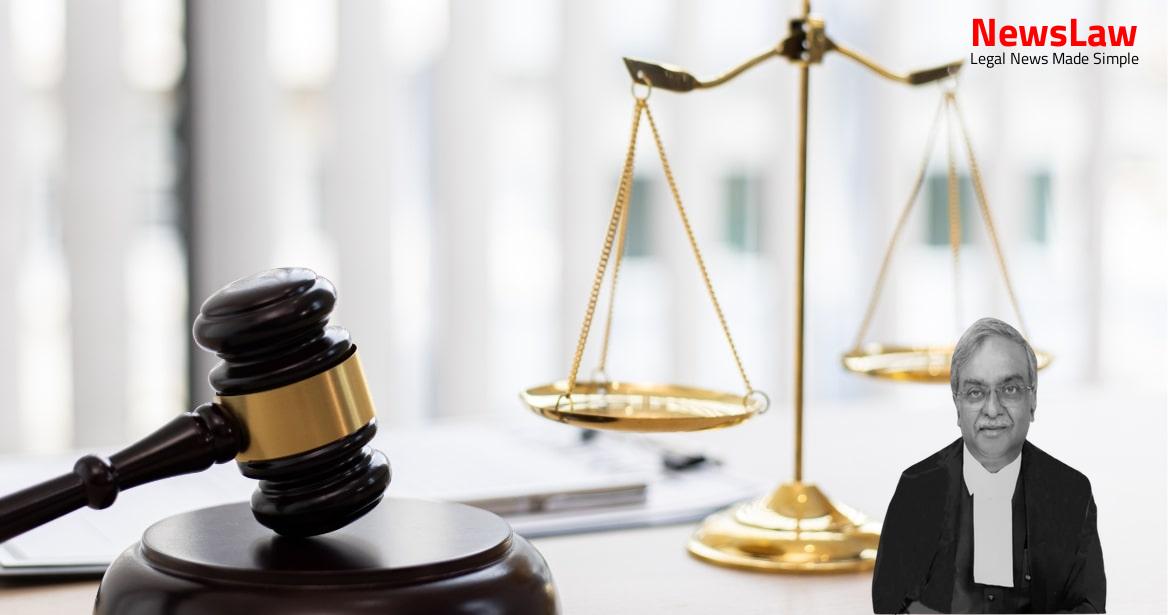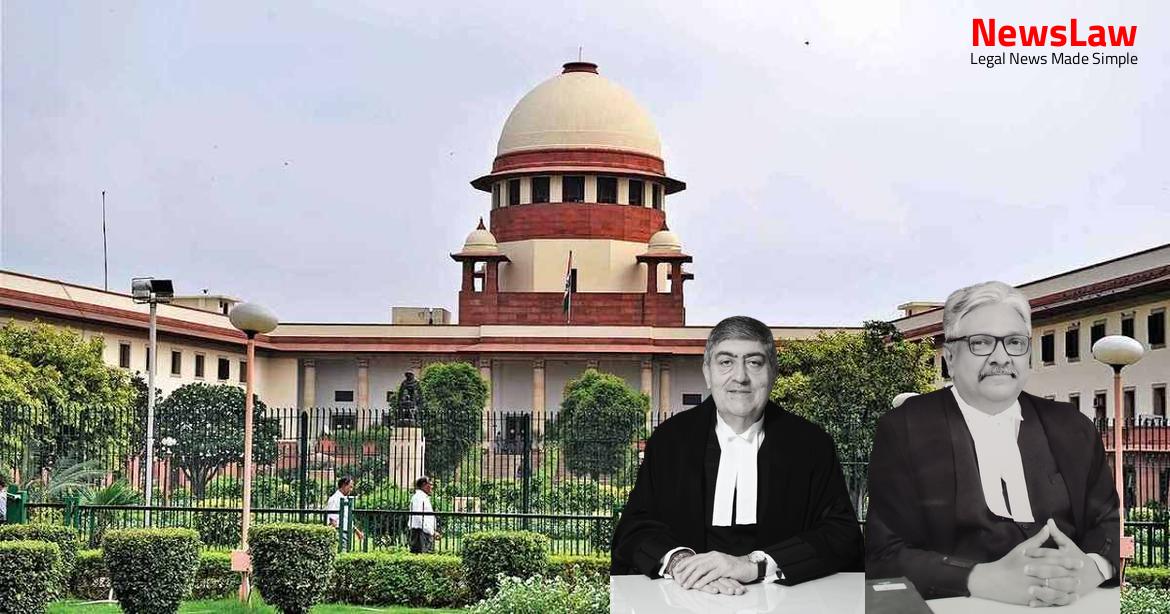Discover the intricate legal analysis surrounding director liability in a recent case involving a dishonored cheque payment. The court’s scrutiny of the statutory provisions highlights the necessity for precise role attribution and strict interpretation when determining liability. Understanding the complexities of vicarious liability under penal statutes is crucial in grasping the court’s decision-making process.
Facts
- PSQ filed a complaint under Section 138 read with Section 141 of the NI Act against the Accused Company for dishonored cheque payment.
- The Accused Company issued a cheque which was dishonored due to ‘account closed’.
- PSQ deposited the cheque for encashment on 10 April 2017.
- Accused No.2, Anjanee Kumar Lakhotia, signed the cheque as the Managing Director of the Accused Company.
- The Court directed Accused persons to appear on 20 August 2018.
- The Judicial Magistrate rejected the Petitions under Sections 305 and 205 of the Cr.P.C. as accused persons were absent.
- The Appellants filed a Criminal Revisional Application under Section 482 of the Cr.P.C. in the High Court.
- The High Court rejected the application stating that the progress of the trial would be hampered due to the accused’s absence.
Also Read: Interpretation of Corporate Guarantor under IBC
Arguments
- Section 305 of the Cr.P.C. outlines how a body corporate accused in a criminal case may be represented.
- The Magistrate may not exempt personal appearance if it serves a useful purpose or if the trial progress is likely to be hampered.
- Section 205 of the Cr.P.C. grants the Court discretion to exempt personal appearance of an accused until necessary.
- The Magistrate should consider the nature of the case and the conduct of the summoned persons when evaluating an application under Section 205.
- Section 141 of the NI Act, being a penal provision, creating vicarious liability, must be strictly construed.
- The Magistrate erred in not recognizing that the Accused Company was being represented by an authorized officer.
- Mr. Luthra argued that the Appellants relied on unimpeachable documents such as Form No DIR-12 and DRI Form No.32 to show their status as Non-Executive Independent Directors from April 2014.
Also Read: Quashing of FIR and Charge-sheet: Legal Analysis
Analysis
- Non-executive Directors are not involved in day-to-day affairs of the company.
- Liability of a Director depends on their role in the company, not just their designation.
- A Director can be liable if they were responsible for the conduct of the company’s business.
- Managing Directors are automatically considered in charge and responsible for the company’s business.
- Other officers of a company can be made liable under specific conditions in Section 141 of the NI Act.
- A hyper-technical approach should not be adopted in construing complaints under Section 141.
- Specific averments against a Director showing responsibility for the company’s conduct are required for liability.
- Personal appearance of Directors can be dispensed with if the company appears through an authorized officer.
- Mere statement of a Director being in charge and responsible is not sufficient under Section 141 without specific role attribution.
- Strict interpretation is necessary when creating vicarious liability under penal statutes.
- Persons sought to be made criminally liable under Section 141 must be in charge of and responsible for the conduct of the business of the company at the time of the offense.
- Independent directors are defined in Section 2(47) and Section 149 of the Companies Act, 2013.
- The liability under Section 141 arises from being in charge of and responsible for the conduct of the company’s business at the relevant time.
- Specific averments about being in charge and responsible for the business of the company are necessary to establish liability under Section 141(1).
- Other officers of a company can only be liable under Section 141(2) with necessary averments regarding their position and role in the company.
- The Appellants, being Non-Executive Independent Directors, are entitled to have the Complaint Case No AC/121/2017 quashed as against them.
- Only persons who were in charge of and responsible for the conduct of the business of the Company at the time of the offense will be liable for criminal action under Section 141 of the NI Act.
- Directors not in charge or responsible for the conduct of the business of the company at the relevant time will not be liable under the provisions of Section 138/141 of the NI Act.
- High Court observed that simply being a Director of a company is not sufficient to make a person liable under Section 141 of the NI Act.
- The provisions of Section 138/141 of the NI Act create a statutory presumption of dishonesty against those covered by the Act and expose them to criminal liability if payment is not made within the statutory period, even after issue of notice.
- Managing Director or Joint Managing Director would be in charge of the company and responsible for its conduct by virtue of the office they hold as Managing Director or Joint Managing Director.
- High Court’s error in not exercising jurisdiction under Section 482 of the Cr.P.C.
- Failure to grant relief to the Appellants despite the circumstances of the case
- The need for the High Court to reconsider and potentially provide relief in this case
Also Read: Judicial Promotion Dispute Resolved
Decision
- The judgment and order of the High Court is set aside.
- Criminal Case No. AC/121/2017 pending under Section 138/141 of the NI Act in the Court of Judicial Magistrate, 2 Court, Suri, Birbhum is quashed in relation to these Appellants.
- The appeal is allowed.
Case Title: SUNITA PALITA Vs. M/S. PANCHAMI STONE QUARRY (2022 INSC 775)
Case Number: Crl.A. No.-001105-001105 / 2022



